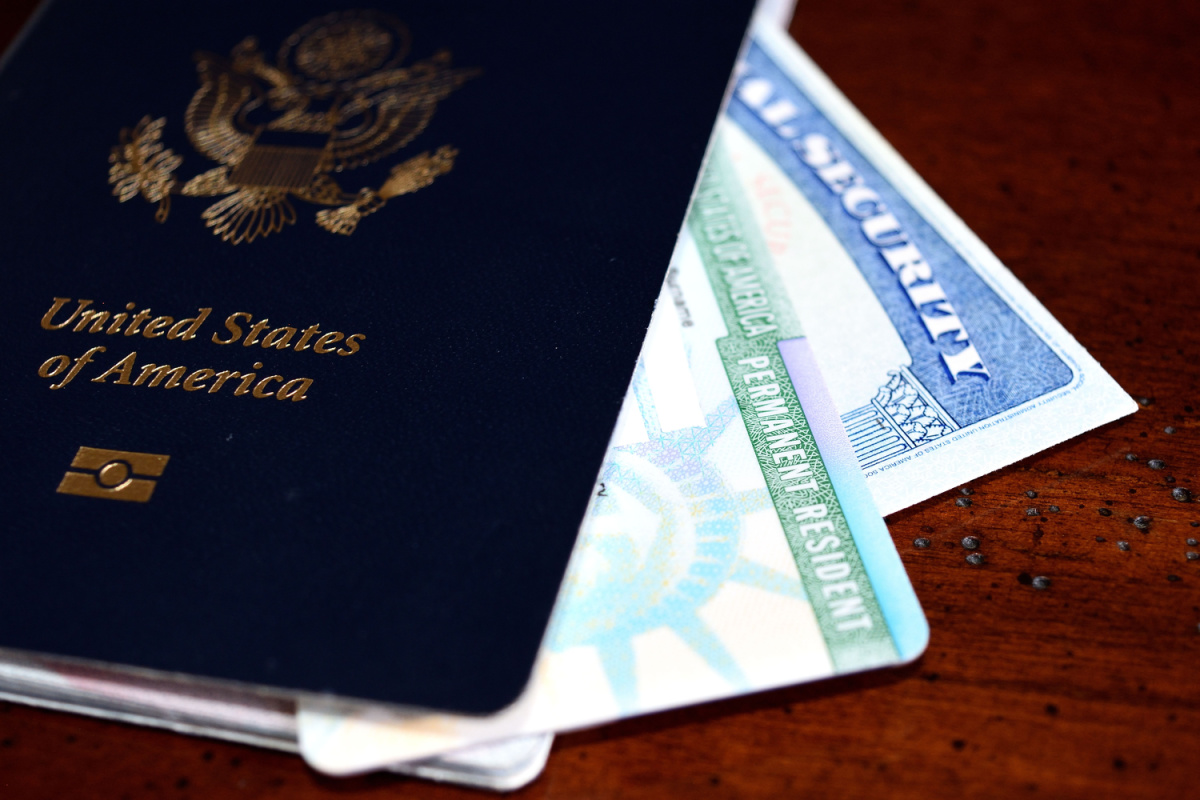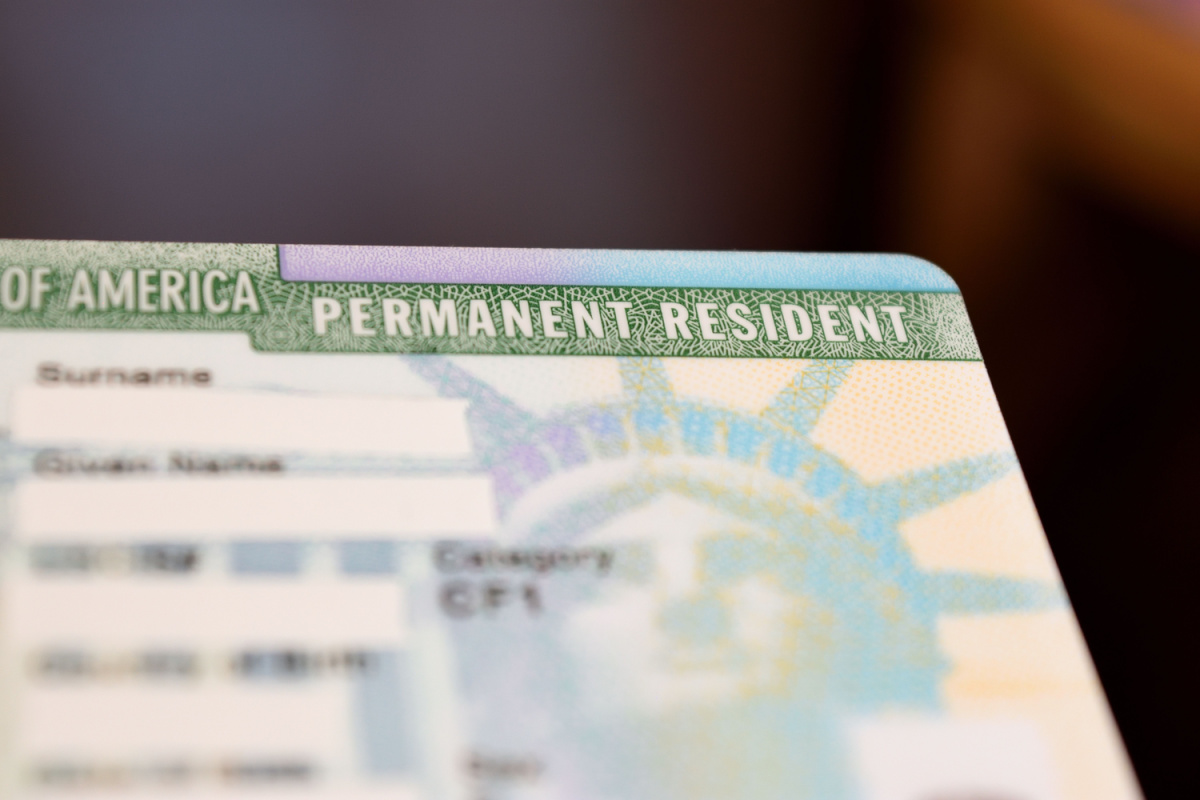Nationality is no impediment to falling in love: with international travel and digital communication easier than ever, it’s no surprise one-fifth of American households have at least one spouse born in a foreign country. Although finding “the one” can feel like overcoming impossible odds, for foreign nationals married to US citizens, marriage is just the first step in securing the right to work in the United States.
The journey begins with an American citizen, who is married to a foreign spouse, filing a Form I-130, Petition for Alien Relative. Once approved, this leads to the crucial step of applying for an immigrant visa. With the visa in hand, the foreign spouse can then proceed to move to the U.S. However, it’s not just about filling out forms and waiting. The process also includes attending interviews, undergoing medical exams, and meeting financial obligations. This journey requires patience, precise document handling, and a deep understanding of the steps involved.
Your First Step: Validating Your Marital Relationship
The journey to obtaining a green card through marriage starts with validating the marital relationship. It is essential for the couple to demonstrate the marriage is legitimate and not just for the purpose of obtaining immigration benefits. This validation process involves providing evidence such as joint bank account statements, property leases, children’s birth certificates, or photos depicting a shared life. The U.S. Citizenship and Immigration Services (USCIS) places great importance on the legitimacy of the relationship. Failing to provide adequate proof may result in the application being denied, so it’s vital to gather as much supporting evidence as possible.
What to Expect During the Green Card Interview
The green card interview typically takes place at a USCIS office or U.S. embassy or consulate, depending on where the applicant resides. Both the U.S. citizen and the foreign spouse are required to attend. The main purpose of the interview is to verify the legitimacy of the marriage. The interviewing officer will ask questions about the couple’s relationship, living arrangements, daily activities, and future plans. It is important to answer all questions honestly and consistently. Bringing additional documentation like photos, correspondence, and shared bills can help provide extra proof of the marriage. The interview can feel daunting, but preparation and honesty are key.
Legal Requirements and Responsibilities as a U.S. Sponsor
As a U.S. sponsor for a marriage-based green card, certain legal obligations need to be met. The sponsor must be a U.S. citizen or lawful permanent resident, over the age of 18, and residing in the U.S. An important part of the sponsorship process is the Affidavit of Support, which demonstrates the sponsor’s financial ability to support the immigrant spouse. This means the sponsor’s income must meet or exceed 125% of the federal poverty guidelines. If the sponsor fails to meet these financial requirements, they may need to find a joint sponsor who does. Keep in mind the sponsor’s responsibility continues until the immigrant spouse becomes a U.S. citizen, or has been a permanent resident for 10 years.
The Importance of the Medical Examination and Vaccination Requirements
The medical examination is an important component of the green card application process. It helps ensure the immigrant applicant doesn’t have any health conditions that could pose a public health risk. The examination must be performed by a doctor approved by U.S. Citizenship and Immigration Services (USCIS). It includes a physical examination, a review of medical history, and certain necessary immunizations. The results are recorded in Form I-693 and sealed for submission to USCIS. It’s essential to note applicants should not open this sealed envelope. The medical examination is more than a mere formality. It is a vital requirement underscoring the commitment to safeguarding public health in the United States.
Understanding the Role of the U.S. Embassy or Consulate in Your Home Country
If the spouse seeking a green card is residing outside the United States, they’ll primarily interact with the U.S. embassy or consulate in their home country. Once USCIS approves the Form I-130, the case is transferred to the National Visa Center, which then sends it to the appropriate U.S. embassy or consulate. This is where the applicant will have their visa interview. The embassy or consulate’s role is to ensure the applicant is eligible for the visa category they’ve applied for. They will review the application, conduct the interview, and if everything is in order, issue the immigrant visa. The embassy or consulate plays a significant role in the final stage of the green card process.
Overcoming Possible Obstacles: Dealing with Inadmissibility Issues
In the process of seeking a green card, an applicant might encounter what’s known as “grounds of inadmissibility.” These conditions or past actions may disqualify them from receiving a green card. Common examples include certain health conditions, past criminal activity, prior immigration violations, or the likelihood of becoming a public charge. However, encountering such issues does not always spell the end of the green card journey. In some instances, applicants can apply for a waiver – essentially a form of forgiveness – to overcome these obstacles. Waivers are available for many, but not all, grounds of inadmissibility, and are subject to approval by U.S. immigration authorities. Thus, tackling inadmissibility issues can be challenging, but there are potential paths forward.
Keeping Your Status Secure: Maintaining Your Green Card Post Approval

Securing a green card is a significant achievement, but it’s also the beginning of a new chapter. Maintaining one’s status as a lawful permanent resident requires adherence to certain rules. Green card holders should inform U.S. Citizenship and Immigration Services (USCIS) about any changes of address within ten days. It’s also vital to renew the green card before it expires, typically every ten years. Furthermore, spending too much time outside the U.S. could lead to the conclusion of abandonment of residence. A prolonged absence might require obtaining a re-entry permit before departure. Understanding these obligations and remaining compliant helps ensure the hard-earned green card status remains secure, opening up the path to a fulfilling life in the United States.
Call 504-523-6496 or contact our expert team for a free consultation.

